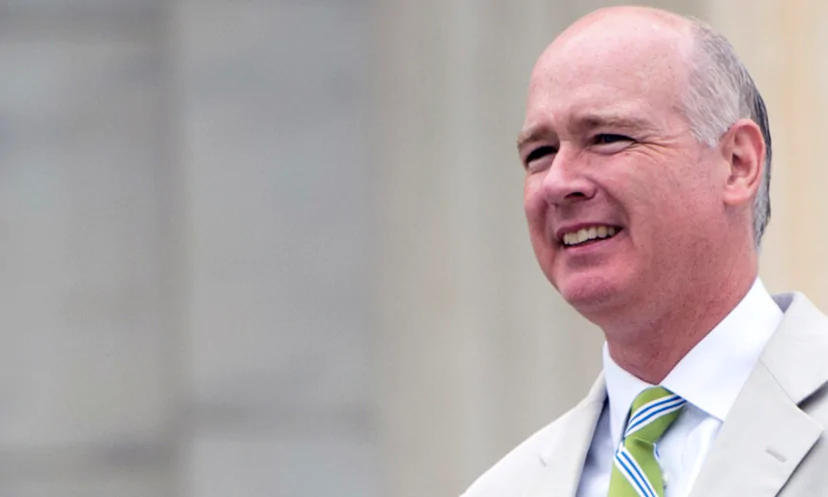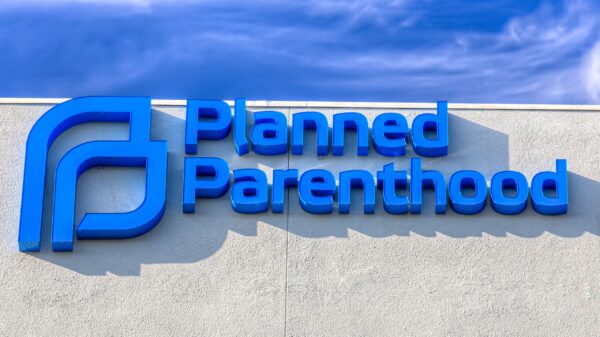Thursday, Congressman Robert Aderholt, R-Haleyville, expressed his disappointment with Congressional Democrats for refusing to add more funds to the Small Business Administration’s Paycheck Protection Program to businesses that have been impacted by the forced economic shutdown to fight the spread of the coronavirus.
“The Paycheck Protection Program was written with urgency to address a great need,” Rep. Aderholt wrote. “At a time when most of the population is under stay-at-home or shelter-in-place orders, this program has helped many businesses retain their employees, while complying with state and local requirements. Yes, there definitely were some growing pains when the program first went active, but what we hear from the roughly 20,000 businesses who have benefited from this program in Alabama is that the program is working.”
“Secretary Mnuchin has stated that due to high demand for this program, the SBA has processed 14 years’ worth of loans in 14 days,” Aderholt continued. “Despite the clear need for relief shown by the large number of applications, I am flabbergasted as to why Democrat leadership has now allowed this bipartisan program to run dry. This program is helping business owners from across the political spectrum. This is an issue we all agree with.”
Last Friday, Senate Majority Leader Mitch McConnell, R-Kentucky, asked for unanimous consent for a plan to add another $250 billion to the PPP. Senate Democrats refused because they wanted to negotiate a more comprehensive package.
“There was a plan last week to inject another $250 billion into the program to keep it funded and to keep small businesses alive,” Aderholt continued. “However, Democrat leadership in the House and Senate were opposed to a clean funding bill and wanted to add more items that do not have bipartisan support. We must not hold the Paycheck Protection Program, and by default, small businesses across this country, hostage to political debate. I urge the Speaker to immediately support the Senate replenishment bill – for anyone who supports low income workers and middle-class workers, it is a moral imperative.”
The government has already spent the $349 billion lending limit on the Paycheck Protection and is now out of money he SBA website reads that it is “unable to accept new applications for the Paycheck Protection Program based on available appropriations funding. Similarly, we are unable to enroll new PPP lenders at this time.”
Tens of thousands of small American business owners are working to deal with the fallout from the forced economic shutdown to fight the spread of the coronavirus. Alabama Governor Kay Ivey (R) has ordered all non-essential businesses including: barber shops, department stores, gyms, furniture stores, book stores, salons, spas, all entertainment, sporting facilities, tattoo parlors, tanning parlors, bars, night clubs, adult entertainment, etc. closed. Elective surgeries and non-emergency dental procedures have been halted and restaurants have been forced to close all of their dining rooms. Some county health officers and mayors have put even more restrictive orders in place.
The PPP was first-come, first-served and the SB announced that it had reached critical capacity on Wednesday, when the SBA said the aid may be nearing a ceiling for loan commitments, with more than 1.3 million loans given approval at a value of more than $296 billion. By Wednesday evening, they had spent $315 billion in loans.
CNBC is reporting that staffers for Senate Minority Leader Chuck Schumer, D-New York, and House Speaker Nancy Pelosi, D-California, are expected to continue talks with the Treasury Department on possibly funding the program. CNBC claims that the two sides are close to a deal.
The loans, if used to make payroll and pay other approved overhead bills, can be forgiven. Without the loans, small businesses will be forced to either go deep into their savings or layoff most or all of their workers, default on their loans, and/or stop making rent or mortgage payments. Small business owners are urged to carefully consider all options before acting in this very fluid situation.
If the program is not funded and/or the economy reopens soon many small businesses will not be able to reopen when it does and the nation could potentially go into a long, deep recession.
“Small businesses are the backbone of the American economy, employing 47 percent of all workers,” wrote Ron Temple who heads U.S. equity at Lazard Asset Management. “In high-cost cities, the median small business has only enough cash to cover 2-3 weeks of expenses. It’s critical for both parties to recognize the unprecedented stress on small business and their employees from this crisis, and pass incremental funding as an urgent priority.”
Congressman Robert Aderholt represents Alabama’s Fourth Congressional District.
Original reporting by CNBC contributed to this report.




















































